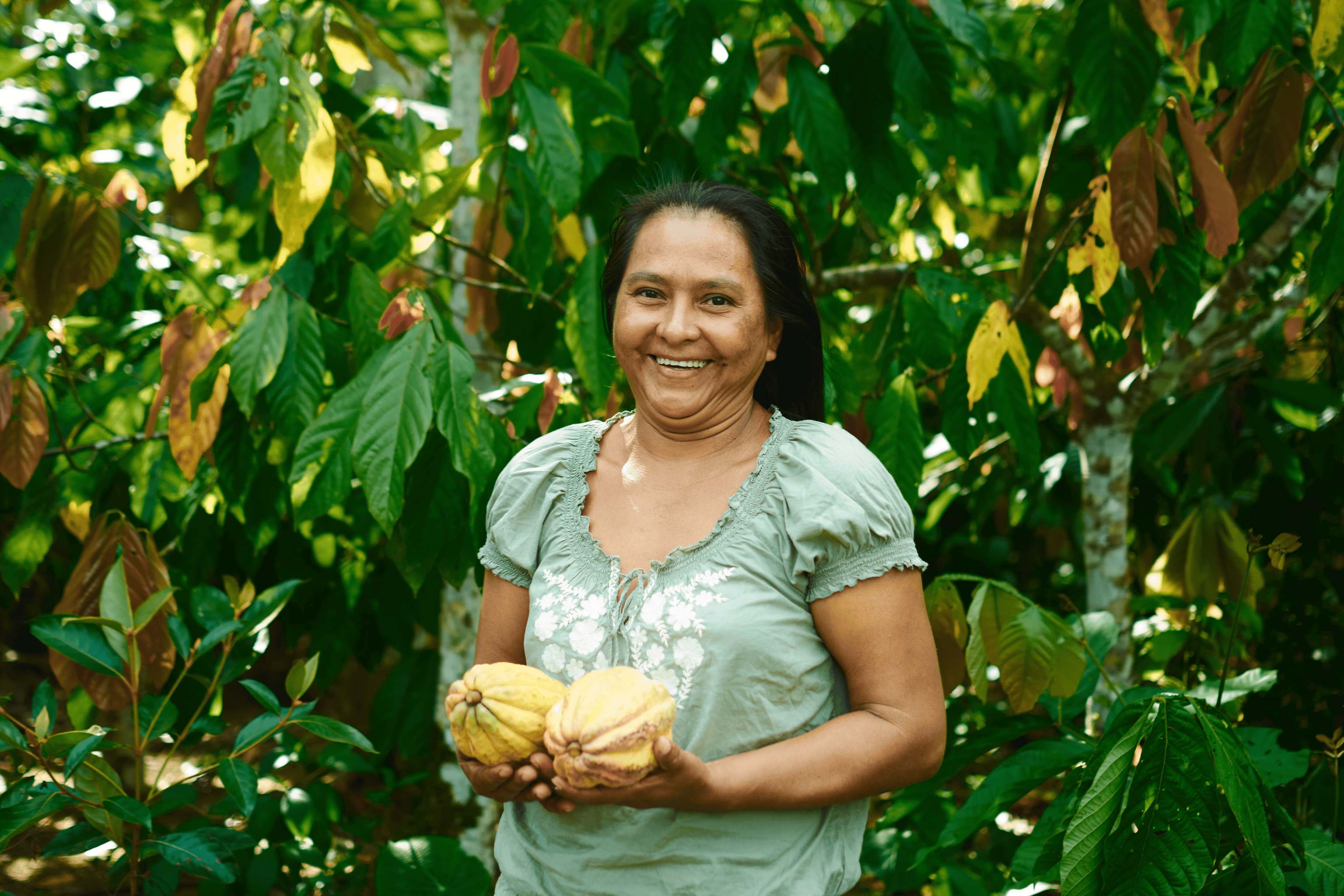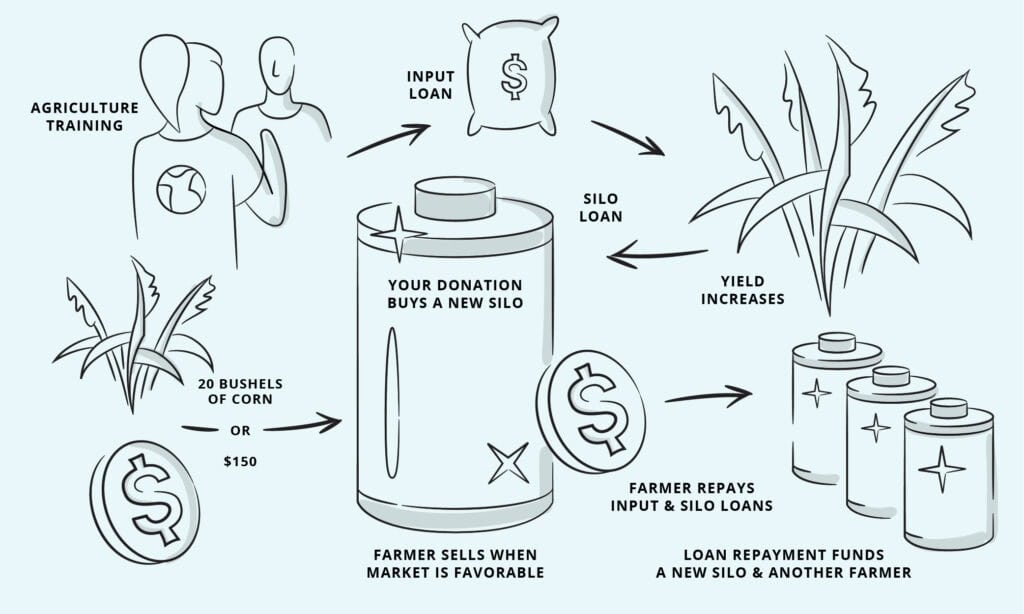
Families face big problems around hunger, including affordable food, proper irrigation, and proper storage for harvest. SHI works with farmers to address knowledge gaps by training them on improved agronomic practices and provides microloans to purchase agricultural impacts.
%
%
$
Quality Protein Maize (QPM) was developed by World Food Prize Laureates Drs. Surinder Vasal and Evangelina Villegas in the late 1990s. It contains about 90% of the digestible protein found in a glass of skim milk, making it a locally-appropriate source of protein for subsistence for farmers who cannot afford to feed meat, dairy, or eggs to their families. This simple seed switch can provide a significant amount of nutrition to families in need, and it also supports our school feeding program.
Self Help also brings technology, like drip irrigation, to farmers. This allows them to use water more efficiently, grow food during the dry season (when families tend to go hungry), and maximize yields.
As yields increase, post-harvest storage becomes critical—no one wants to sell when prices are low. Simple, locally-made silos enable farmers to wait for the market to rebound and reduce post-harvest loss by 37%.
A better product only helps if a farmer can produce it. In 2015, 300 youth and farmers attended training sessions on practical agricultural enterprises at our training sites in Nicaragua and Ghana. We want to ensure their knowledge can be put into action to create long-term sustainability.
The Youth Agriculture Clubs, an initiative of Self-Help International’s Agriculture and Entrepreneurship Development (AED) team, are changing the narrative for rural youth. In many communities across Ghana, farming is often seen as a last resort—something for those without better options. But the AED team, with their passion and expertise, is working to change that perception.
Benjamin Bogene (pictured), a member of the Agric Club in Nkontomire, shares his excitement about what lies ahead. “I never thought I could make money from farming while still in school,” he says with a smile. “Now, I’m growing pineapples, which will not only provide fruit for us in school but also give me the chance to sell them at the market.”



This is my rich text.
This is more rich text.
I am a list
Lists are cool